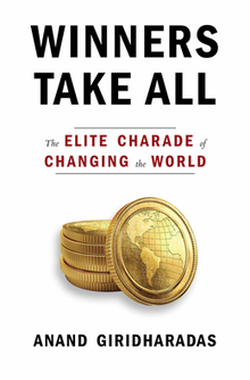 The oil price crash startled the global market which was already apprehensive regarding the influence of the novel corona-virus pandemic on world economy. The plunge has been exacerbated by the dwindling demand of oil given the worldwide spread of the virus. The situation ignited a succession of cuts in oil prices. The contagion has negatively affected the energy requirements across the world, primarily in China that is the largest importer of crude oil. However the virus that was first reported in China has now been declared a pandemic causing cancellation of majority of international flights and halting of industrial units. Assets and markets throughout the world have been poorly affected by the price slash. The price crash was set off by the Kingdom of Saudi Arabia as the state steeply slashed the oil prices. The act was in retaliation to Russia. During the OPEC+ meeting in Vienna between Organization of the Petroleum Exporting Countries (OPEC) and its ally Russia, the festering inconsistencies in their outlook on oil prices finally came out in the open. Saudi Arabia asked the Russian representatives to reduce their oil supply so that the prices of oil in the international market could remain higher during the corona virus pandemic. Russia had participated in Vienna meeting inclined to curtail the growth of U.S. shale production. Despite the willingness to find a middle ground, Russia declined to put a restriction on the volume of oil it has been producing. Saudi Arabia thus started an oil price war between OPEC, Russia and U.S. Russia has turned weary of the policy of reducing its oil supply in order to ensure stability of oil prices; and is of the view that such a strategy provides greater growth opportunity to the U.S. shale firms. The current oil war appears to be one with no clear winner. All parties will face monetary loss irrespective of the buyers they may retain. However, they have been gauging their success in the energy market on the basis of their market share irrespective of the sale price. With the continued tanking of oil prices, and fast spreading pandemic, U.S. oil firms are declaring budget cuts. Shale oil had brought with it economic boon and lower oil prices will be detrimental to the U.S. oil companies. Although U.S. oil firms got caught in the middle, yet U.S. still continues to be the largest oil producer in the world. Following the current trajectory, Saudi Arabia is expected to take second spot. In the case of the OPEC states, though their production cost is the minimum. However, they are required to maintain a relatively higher price around $70 per barrel to avoid a deficit as they have high consumption rates and offer subsidized prices for their populations. Moscow claims to be well-shielded from the Saudi price cut as its budget is set up on a rather low price of oil. However, it is expected to depreciate a little from its place in the energy market. The party to bear the greatest burnt will be the oil dependent countries. It is foreseen that the tussle might culminate only when Saudi Arabia will successfully resume its position as the oil market leader. For Pakistan, the decrease in oil prices will be beneficial for the state in terms of the macroeconomic indicators as the imports of the country are oil-based. The current oil price cuts will reduce the oil import bill of the country. On the other hand, the Oil and Gas Exploration and Production sector, would be poorly hit by the lowered prices. In addition, it is not expected that the consumers in Pakistan would get to benefit directly from the lower oil prices in the international market.
0 Comments
 "Winners Take All" is written by a former columnist of The New York Times, Anand Giridharadas, highlighting the attempt by the elites to rebrand themeselves as the saviours of the unpriveledged. The author explains how the claimed role of the world’s elite in bringing about societal change is actually only meant to sustain their own privileged place in the system. The book is a criticism of the plutocratic class of philanthropic tech billionaires and bankers that get together at Davos and Aspen in a supposed attempt to challenge inequality and cause societal change. The book presents the most prevalent ways in which people think of the idea of philanthropy. Firstly, there is an impression that with such widespread issues in the world, one should be happy if the rich are extending help to resolve those problems. Secondly, the notion that elite philanthropy is well-intended but falls short in bringing any real change. Their efforts are directed toward the symptoms of the problem rather than dealing with the problem itself. Lastly, the book presents a dark outlook of philanthropy where the elite are not only unsuccessful in improving the situation rather they contribute in keeping the situation the way it is. “Those at greatest risk of being resented in an age of inequality are thereby recast as our saviours from an age of inequality.” Giridharadas argues that for such elite philanthropists the only real concern is to sustain a world system that has brought them wealth as the majority population on the planet is on the lookout for help. Lucrative firms built with debatable means and using irresponsible methods take part in corporate social responsibility. Such rich people make headlines by “giving back”—irrespective of the fact that they may have initiated grave social problems as they made their wealth. Giridharadas, Anand. Winners Take All: The Elite Charade of Changing the World. New York : Alfred A. Knopf, 2018. |
AuthorA lecturer and lifestyle consultant by the day; an avid reader and writer by the night, I am a student of life. Archives
March 2024
Categories |
 RSS Feed
RSS Feed